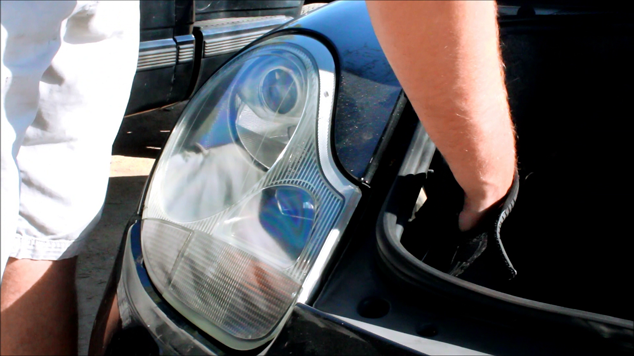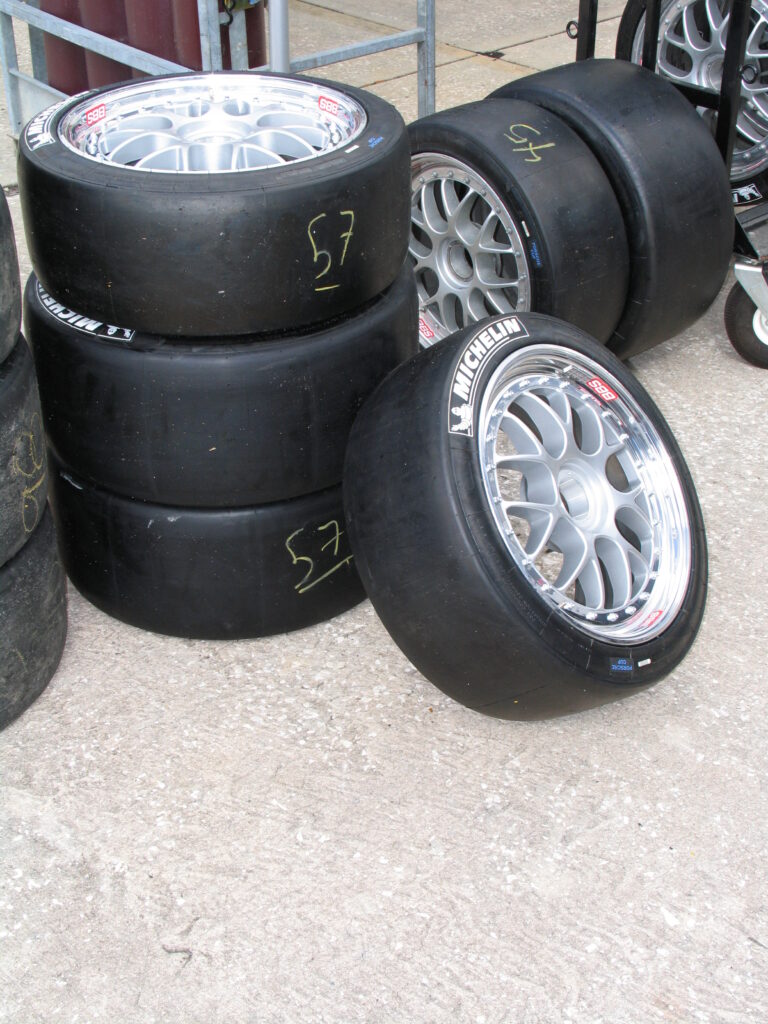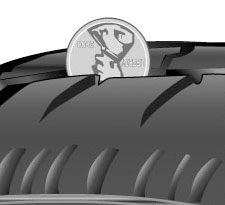Synthetic Oils; Should You Be Using Them?
By: Ken Koop—Yellowstone Region
Do synthetics work better in some cars than others? Can you change the oil less frequently by using them? Do they make your engine last longer? Should you be using them in your car? Are they cost effective? Will they make the engine seals leak? Most people do not really understand how synthetic oils work or how they benefit an engine. Let’s examine some of these questions to get a better understanding of synthetic oils.
The precursors to synthetic oil actually began during World War II and then became even more important for the aviation industry with the development of jet engines. Synthetic oils are unique in their ability to function very dependably during extreme hot and cold operating temperatures. They also can withstand the rigorous and lengthy high temperature engine operation (without chemical breakdown) that a jet engine places on their lubricating fluids. Because of their extraordinary capacity to reduce friction and wear on jet engine parts, other applications to utilize synthetic oils were quickly looked at. Since these same advantages would obviously be a benefit to the automobile industry, the oil companies began working to bring synthetics to the automotive market. Early synthetic oil applications for road use were developed as problem solvers. Engine oil products from Conoco and Mobil were developed for use in equipment on the Alaskan North Slope due to the extreme cold weather operating conditions. In 1972, Amsoil introduced their synthetic motor oil for automotive applications and shortly thereafter, Mobil SHC was launched for cars in Europe. Mobil SHC went through further development and in 1974 it became the product we know today as Mobil 1. By the 1990’s, many other oil companies brought their synthetic oils to the marketplace and sold them along with their conventional petroleum-based products. Mobil 1 is by far, the largest selling brand of synthetic motor oil on the market today.
Conventional oils come from crude oil that is pumped out of the ground. In an oil refinery, crude oil is separated into various “fractions”. These fractions become the bases for lubricating oils and fuels. The part of crude oil that form the thick tangled masses of carbon chains are used in roofing tars and blacktop for roads. The very short-chain and ring compounds of carbon are volatile and can be refined to produce gasoline, diesel, lubricating oil and other products.
All motor oils are composed of (1) base oils and (2) additives (e.g. detergents). In general, fully synthetic motor oils contain 100% non-conventional, high-performance fluids. Whereas, synthetic blends typically use some non-conventional high-performance fluids, in combination with conventional oil for their bases. It is the unique chemical formulation of synthetic oil that allows them to be highly resistant to viscosity breakdown caused by high temperatures, friction and chemical contaminates. The chemical contaminates that affect a motor oil’s life are controlled by the detergents that are added to all oils (both synthetic and conventional). These detergents suspend, absorb or breakdown the contaminates in the oil and are one of the main reasons that oil needs to be changed on a regular basis.
Conventional oils lack the performance of synthetic oils in the areas of both low-temperature flow rates (pour points) and high-temperature oxidation stability (flash points). Conventional motor oil is made up of an inconsistent mixture of long and short chains of carbon and hydrogen atoms. In the extreme heat of an engine, the short-chain molecules can evaporate and unstable long-chain molecules can oxidize and break down. Conventional oils also contain greater amounts of impurities such as sulfur, reactive and unstable hydrocarbons as well as other undesirable contaminates that cannot be completely removed by the conventional refining process. Mobil 1 uses high-performance fluids including polyalphaolefins, along with a proprietary system of additives, which turn the finished oil into a much purer and homogeneous lubricant.
Should you be using synthetic oils in your car? Well that depends on the vehicle’s age, mileage and recommendation from the manufacturer. Older vehicles with high mileage tend to have excessive mechanical wear in the engine, allowing for unwanted internal oil by-pass (burned in the combustion chamber by passing through the piston rings). For vehicles with high mileage, it may not be ideal to use conventional or synthetic oils with lower viscosity ratings such as 0W-20/30 or 5W-20/30 because they are very thin and free flowing. The use of these lower viscosity oils could potentially result in higher internal oil consumption in older engines. However, the use of synthetic oils in older vehicles without excessive wear is permissible. One concern that owners of air cooled engines have is the reduction of Zinc (Z) and Phosphate (P) in the newer (actually all) oil formulations. This reduction in Z & P helps to prolong the catalytic converter’s service life. However, these same compounds have been instrumental in reducing wear on valve train components such as cam lobes and valve lifters in older engines. Using higher viscosity synthetic oils such as 15W-50 still retain higher levels of Z & P and are probably still permissible to be used for air cooled engines. The formulations are continually changing, so it is wise to monitor the oil that you use for both Z & P levels.
Many automobile manufacturers use full synthetic and semi-synthetic oils in their engines today. Porsche adds Mobil 1 at the factory to all of their new cars and only recommends Mobil 1 to be used in their cars since it is one of the few synthetic oils that are actually fully synthetic (not just a semi-synthetic blends). Porsche has used Mobil 1 exclusively since the early 90’s, in all of their production and racing cars. In general, you will find that synthetic lubricants are used when there is a high-performance engine with tight tolerances; high compression ratios; turbo-chargers; or high operating temperatures involved. For those of you that track your cars, especially on hot days, synthetic oils are much more predictable than conventional oils and are able to prevent the viscosity of the oil from breaking down (making synthetics more stable). It is also important to follow the owner’s manual for the correct motor oil recommendations regarding viscosity grades (0W-40, 15W-50 etc) to provide proper lubrication and cooling of the engine parts at all operating temperatures. If you want to use a synthetic oil and your car is still under warranty, check with your local dealer before switching to a synthetic oil to make sure you are able to do so under the warranty specifications (the last sentence pertains to your non-Porsche automobiles).
Porsche uses fairly low viscosity ratings for their newer cars (generally 0W-40 and 5W-40 weight oils). There are a number of reasons for this; the first is that the car will get better fuel mileage with lighter weight oils since heavier oils generate more resistance. Another is that with the use of newer and lighter weight materials inside the engine, tolerances are tighter and lighter oils will flow better between the two materials. With the development of the Vario-Cam Plus system in the mid 90’s (which helps to develop more power and better fuel mileage), it requires the use of lower viscosity oils to work properly. Sludge and varnish build-up inside the engine are all but eliminated with the use of these light weight synthetics. So there is good reason for Porsche to be using them.
Another commonly asked question is; will synthetic oil leak out of my older car’s gaskets or seals? The answer is, (according to the Exxon Mobil Corp.) “Mobil 1 does not cause leaks. Mobil 1 was tested in dozens of industry standard and original equipment manufacturers tests to prove its seal performance. It is fully compatible with the elastomeric materials from which all automotive seals and gaskets are made. If an older engine is in good condition and does not currently have oil leaks, then Mobil 1 will provide the same advantages as when used in a new engine”.
The auto manufacturers use synthetic oils for a number of reasons: (1) They provide better lubrication allowing the engine to last longer. Synthetics are able to do this because the molecules reduce friction so much better than conventional oils. They produce less engine wear and provide for greater engine longevity. (2) Synthetic oils give better fuel economy because there is less friction developed between moving engine parts. (3) Engine start-up wear is also greatly reduced with 0W-xx or 5W-xx viscosities, because the fluids can be pumped through the oil system easily and get to the parts requiring lubrication quickly (especially beneficial in cold climates). (4) Synthetics are highly resistant to viscosity breakdown (the ability of an oil to flow during all ranges of operating temperatures) from heat, friction and chemical contaminates. (5) They provide for longer service intervals (5,000-7,000 miles compared to 3,000 miles for conventional oils). For instance, my Porsche Cayenne has a recommended oil change interval of 20,000 miles with the use of Mobil 1. (6) Because of their longer service life, they are also better for the environment since there is less dirty oil that has to be recycled. (7) Synthetics have proven themselves in the most difficult of all automotive applications—racing. Almost every Porsche and professional racing team now use synthetic oils exclusively in their race cars.
One of the only arguments for not using synthetic oils is the cost. They are about two to three times the price of conventional oils. However, because of their superior lubricating properties, the increase in cost is more than offset by improving the engine’s performance, lowering the maintenance costs (extending the oil change interval), being friendlier to the environment, reducing fuel consumption and increasing the longevity of the engine itself.
Exxon Mobil Corp. currently makes two different types of synthetic oils; Mobil 1 and Mobil 1 Extended Performance (good for 15,000 miles between oil change intervals). Both offer superior lubricating properties for all of our high-performance engines. Another thing you may wish to consider is the lubrication of the car’s non-engine parts (ball joints for steering, wheel bearings and transmissions). Mobil 1 also offers a full range of synthetic gear lubricants and synthetic grease that will out-perform conventional lubricants. With the use of these products, you should be able to keep your Porsche running at its best for a long time.




